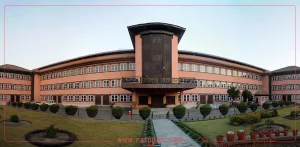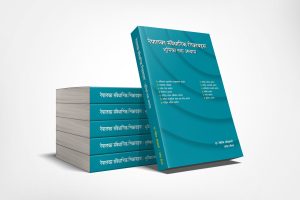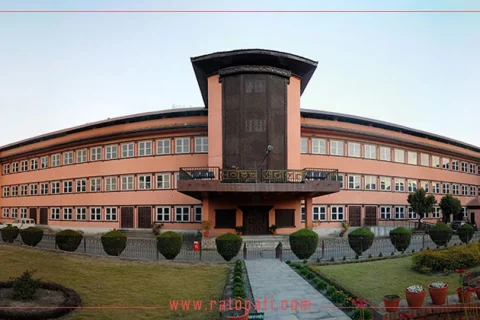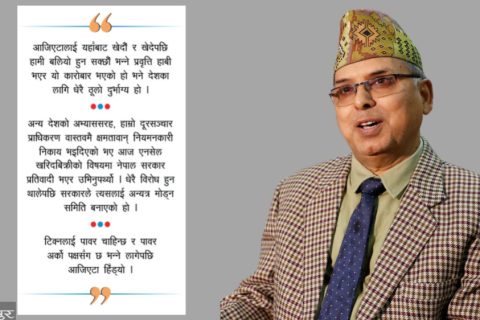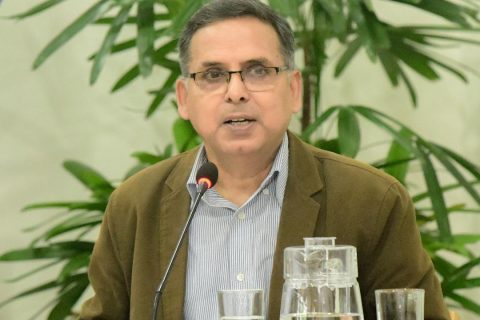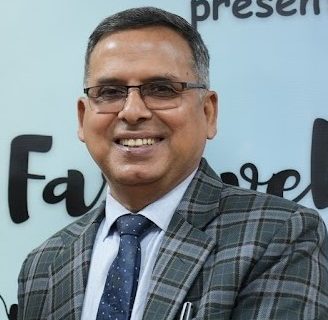Government doesn’t need to dissolve House, it can simply prorogue ongoing session which means the end of its tenure, an expert says.
The Election Commission said on Friday that it has started preparations to hold the federal and provincial elections by the third week of November.
Speaking at a meeting of the parliamentary committee on Women and Social Affairs, Chief Election Commissioner Dinesh Thapaliya said that the elections will be held by November 25.
Meanwhile, Minister for Federal Affairs and General Administration Rajendra Shrestha said the commission has proposed holding the elections in a single phase on November 16, or on November 14 and on November 19 if they are to be held in two phases.
“The government will announce the poll date soon,” he said while addressing the municipal assembly of Kathmandu Metropolitan City on Friday. “The federal and provincial elections will be held in the next four or five months.”
As per the law, the government announces the poll dates in consultation with the commission.
There is, however, one confusion that no one has been able to address. Till when the House of Representatives can function once the election is announced?
Since 1990, after the restoration of democracy, the parliament’s term is fixed for five years. However, Nepal’s democracy has been fragile and constitutions over the years—the country has adopted three charters since 1990—have created quite a confusion.
Gopal Nath Yogi, secretary at the House of Representatives, said there is no legal clarity.
“When a House is prematurely dissolved, poll dates are announced simultaneously. The country then goes to snap polls. However, in case of regular elections, there is no clarity as to how long it can function after election dates are announced,” Yogi told the Post. “It is up to the government when to end the tenure of Parliament.”
As per Article 85, the term of the House of Representatives shall be of five years unless dissolved earlier. It, however, doesn’t say whether or not the House can function after the poll dates are announced.
Usually, dates are announced 120 days prior to the elections, so as to give ample time to the Election Commission for preparations.
A few days ago, the commission made it clear that the current term of the House will be until December 8, clearing the confusion as to when it will complete its five years.
The commission said it has taken December 8, 2017 as the date of commencement of the Parliament tenure as per the House of Representatives and Provincial Assembly Elections Acts. It decided to fix December 8 as the commencement date, saying that on this day the winners of both federal and provincial elections under the first-past-the-post category were announced.
In 2017, the elections for the House of Representatives and the seven provincial assemblies were held in two phases. The first phase of elections was held on November 26 and the second on December 7.
Commission officials say they cannot say what happens with the lower house once the election dates are announced.
“We are not in a position to say for how long Parliament can function after the election dates are announced,” Yagya Bhattarai, a joint secretary at the commission, told the Post.
In some parliamentary democracies like neighbouring India and the United Kingdom, there are some provisions in place to guide the term of the House.
In India, Article 83 (2) of the constitution says unless sooner dissolved, the House of the People or Lok Sabha shall continue for five years from the date appointed for its first meeting and no longer and the expiration of the said period of five years shall operate as dissolution of the House.
Since the first meeting of the 16th Lok Sabha was held on June 4, 2014, when members were administered oath, the term of that Lok Sabha was to expire on June 3, 2019. It, however, was dissolved by the Narendra Modi Cabinet on May 24, 2019 because he was set to take the oath as prime minister again after his party won the elections held from April 11 to May 19. This means the Lok Sabha was very much in place when the general election took place.
Modi was sworn in as India’s prime minister for a second term on May 30, 2019, a week after he dissolved the Lok Sabha.
In the United Kingdom, the general election is guided by the Fixed-term Parliaments Act 2011. The Act provides that Parliament is dissolved automatically after five years. Parliament is dissolved automatically 25 working days before a general election. Unless a general election is triggered outside of the five-year period, as per the Fixed-term Parliaments Act, the next date of the general election is at five-year interval on the first Thursday of May.
If the elections were to be held by November-end, the government has to announce the dates by the end of next month, so as to allow 120 days, preferably, to the Election Commission for preparations.
Legal experts said confusion has arisen in Nepal because there is no legal provision. They, however, say the present government has an opportunity to address the confusion for good by ending the tenure once the election dates are announced.
“The ongoing House must come to an end once the election dates are announced,” Bipin Adhikari, a professor and former dean of Kathmandu University School of Law, told the Post. “However, as there are crucial bills pending, the government can wait to end the House until they are ratified.”
The Parliament has as many as 61 bills including the replacement bills to the ordinances to discuss and endorse. Some of the bills are related to the implementation of federalism and have been in the House for the last four years or so.
Adhikari said the government doesn’t need to dissolve the House, it can simply prorogue the ongoing session which automatically means its tenure can end.
There’s no guarantee that parties will field new faces in the upcoming elections. Incumbent lawmakers who want to run for yet another term will launch their election campaigns as soon as the dates are announced.
“Conducting the election campaigns while also enjoying the pay and perks from the state is not a good practice,” said Adhikari. “It will amount to misuse of the state resource.”
Experts on parliamentary affairs say if there is legal confusion, the government must address it so as to set a precedent so that there won’t be similar confusion in the future.
According to Daman Nath Dhungana, a former Speaker, the best action will be ending the current term of the House as soon as elections are announced.
“It would be illogical to continue the business of the lower house even after the election dates are announced,” said Dhungana.


